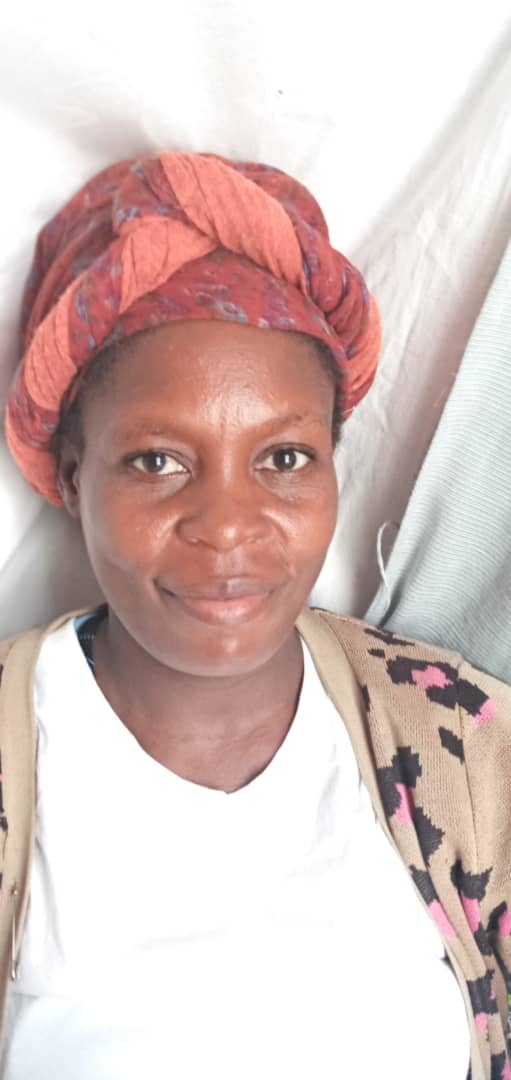Laumène is a mother of seven children with five different men. She lives in Dipwi, in northern Gwomòn, with the father of her two youngest children, their two kids, and two of the man’s children from a previous relationship. His young teenage daughter, Laurène’s stepdaughter, is now also Laurène’s makomè, the godmother to Laurène’s one-week-old baby.
Laurène is from Dipwi, but seventeen years ago she was living in Pòtoprens, supporting herself through small commerce. She sold used clothing and cosmetics. Then she became pregnant with her oldest child, and she moved back to Dipwi. The child’s father wanted her to move to his family’s home in Plezans to have the child, but she was unwilling. The five children who do not live with her are all living either with their father or their father’s family. She keeps track of them, and thinks they are all well.
She alternated through the years. When she had young children to manage, she sought help from a series of partners. As they grew, and she could leave them with other children, or on their own, she would try earning money herself. The father of her fourth and fifth children, who also lives in Dipwi, used to help her with her kids. He wasn’t willing to pay for school for the ones that weren’t his, but he gave her his harvest to sell, and he bought their own children what they needed.
That was, however, some time ago. She hasn’t had her own business in some time. She can’t right now, while she’s nursing her infant, but she plans to return to small commerce in about five months. “As soon as I can leave the baby with his godmother.” The young girl smiles when she hears Laumène mention her future responsibilities.
Laurène chose goats and a sheep as her two enterprises, and she’s excited to have them. “I have my little brother and my uncle. They can help me take care of them.”
She knows what she wants to do with them. Her objective is clear. “I own my house, but I don’t own the land it’s on. If the animals produce young, I want to use them to buy a small piece of land to build on.”
She explains her situation. The house stands on land that her grandparents left to her mother and her aunt. A couple of years ago, the aunt told her that the side of the plot that Laurène had built on belongs to her. Laurène had no idea. She didn’t think the grandparents had parceled-out the land specifically that way.
The aunt hasn’t been pushy about it, but she’s made it clear that she’d like Laurène to put her house elsewhere. Though Laurène knows that neither the aunt, who lives in Pòtoprens, nor her cousins, who are generally well-off, particularly need the land, the situation has become uncomfortable for her, and Laurène would like to move on.
In the meantime, she is managing things, even in her current state, so that her family keeps moving forward. Last time her case manager saw her, just a day before she had her child, he gave her a week to finally get her latrine enclosed. She agreed that she’d speak with her father and her brother. Here is the note the case manager left in her information book:

When he arrived today, it was walled-in with new roofing tin. Quite an accomplishment for someone the week she gives birth.

